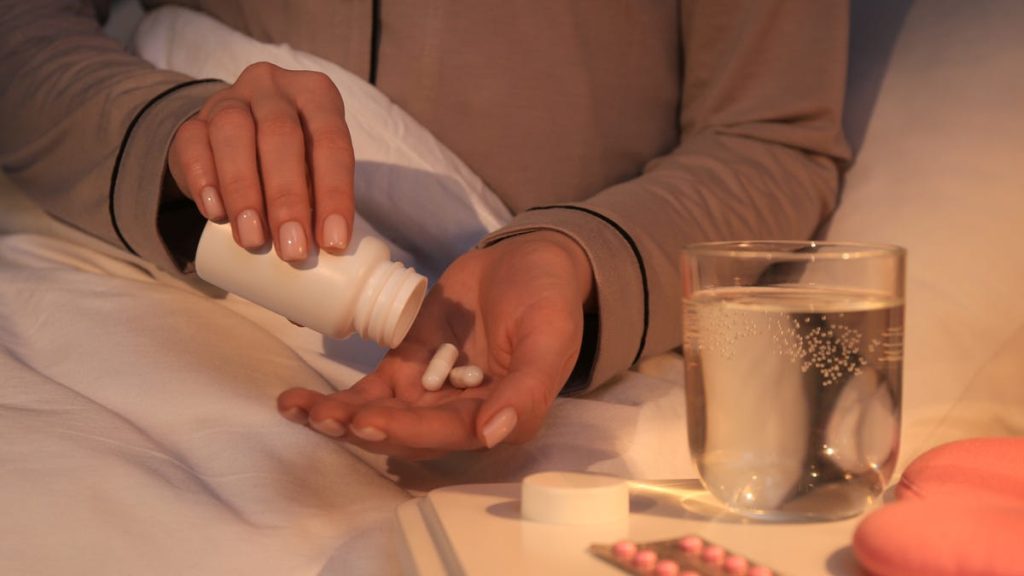Many Americans struggle with insomnia, which can have serious effects on mood, brain function, and the immune system. While traditional remedies like yoga, journaling, and melatonin may not always be effective, adding a sleep aid supplement to your routine can be a cost-effective and successful treatment option. One such supplement that is gaining popularity is gamma-aminobutyric acid (GABA), an amino acid that promotes a calming effect in the body. Research has shown that GABA can be a good alternative to melatonin for improving sleep quality, as it affects early sleep stages without leaving you feeling groggy in the morning. Taking GABA supplements before bed can help address anxiety, stress, and an overactive brain, making it easier to fall asleep.
GABA is a neurotransmitter naturally found in the brain and some foods, such as tomatoes and soybeans. It works as an inhibitory neurotransmitter, blocking chemical signals in the central nervous system and reducing brain activity. GABA can help promote calmness in the body and regulate nerve cell hyperactivity, particularly in times of fear, anxiety, or stress. Low levels of GABA have been linked to sleep deprivation, so taking GABA supplements can help improve sleep latency and overall sleep quality. While more research is needed to fully understand the effects of GABA on sleep efficiency, it is generally considered a safe and effective option for those struggling to fall asleep.
Tips for taking GABA as a sleep aid include taking it 30 to 60 minutes before bed, following dosage instructions, and tracking its effectiveness using a sleep journal. GABA can be consumed as a supplement or in food form, and it is naturally found in fermented foods like kimchi and sourdough. While there are generally no serious side effects associated with GABA supplementation, some individuals may experience abdominal pain or headaches. It is important to consult with a healthcare provider before starting GABA or any new supplement, especially for pregnant individuals, those under 18 years old, and those taking medications for high blood pressure or seizures.
In addition to its potential as a sleep aid, GABA has also been shown to provide stress and anxiety relief. Low levels of GABA are associated with anxiety and depression, and supplementing with GABA may help alleviate these symptoms. Studies have shown that GABA can help ease stress and improve overall mental health, making it a valuable supplement for those dealing with anxiety-related sleep issues. As with any new supplement, it is important to talk to your doctor before starting GABA, particularly if you are taking other medications or have existing health conditions. Consulting with a healthcare provider can help ensure that GABA is a safe and effective option for improving your sleep and reducing stress and anxiety levels.


